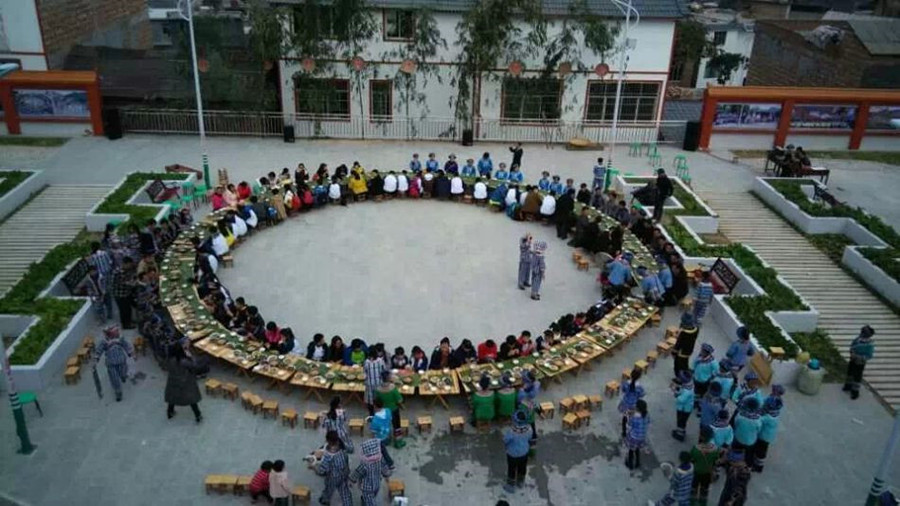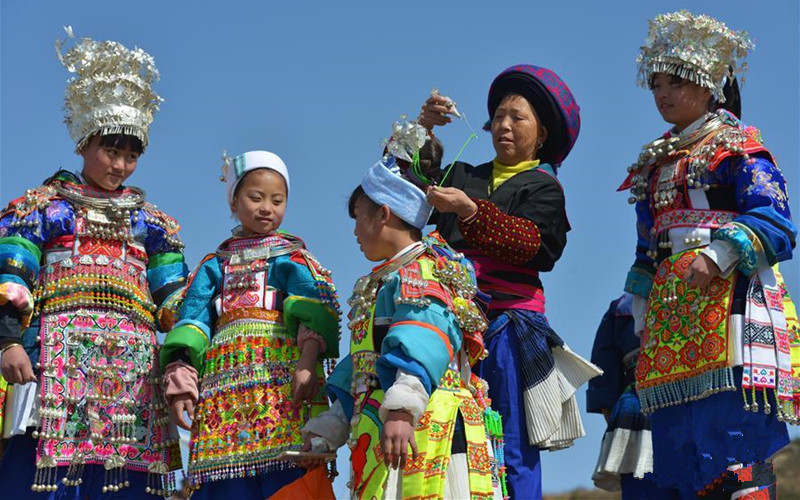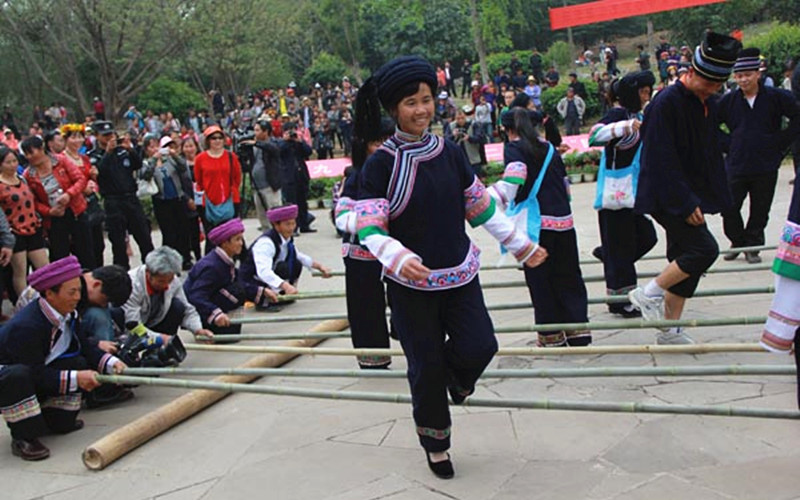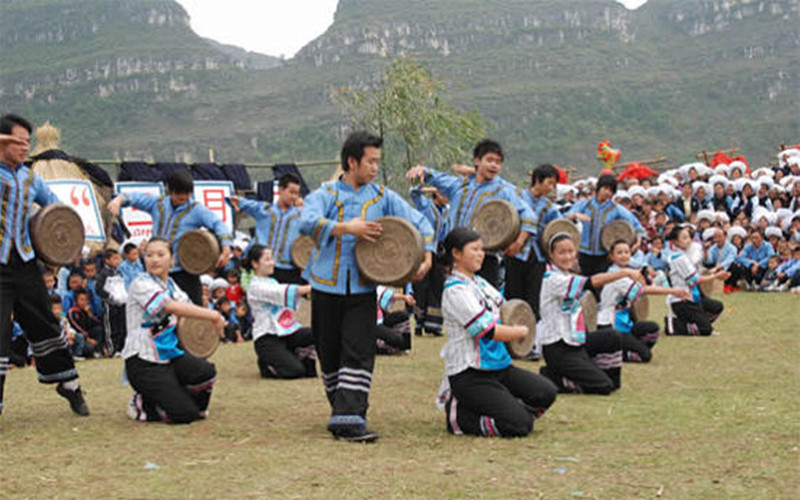
Buyi Ethnic Minority
Buyi is a greater minority in southwest China, on the Yunnan-Guizhou plateau. The Miaoling mountain range stretches across the plateau and forms part of its dramatic landscape. The famous Huangguoshu Waterfall is over 60 meters high near Yungui expressway in Zhenning Buyi autonomous county. The thunder of the water can be heard for miles, and the mist over the falls forms a spectacular view.
Distribution of Buyi Ethnic Minority
Buyi ethnic minority is mainly distributed in Guizhou, Yunnan and Sichuan provinces, among which Guizhou province has the largest Buyi population, accounting for 97% of the national Buyi population. They live mainly in Qiannan and Qianxinan Buyi and Miao autinomous prefectures, as well as Anshun, Guiyang and Liupanshui. Yunnan’s Buyi people are mainly distributed in Luoping County, Fuyuan County and Hekou County.
Buyi Ethnic Towns
Lubuge Bouyei Ethnic Town Changdi Buyi Ethnic Town
Inheritors
The Opera of Buyi Ethnic Minority Famous Wax-dyeing Craft
Festivals of Buyi Ethnic Minority
Generally speaking, Buyi people have the same festivals as the Han people, such as Spring Festival, Dragon Boat Festival and Mid-Autumn festival. However, on April 8 and June 6, they celebrate their own festivals, honoring the leaders of ancient uprisings and their ancestors. On this day, people make special cakes and sticky rice in five different colors to worship their ancestors. After the ceremony, half of the offerings are given to their cattle, who will be given a day off as a reward for their hard work.
Zhabai Song Festival and Liuyueliu Festival Sanyuesan Festival Danian Festival Eryueer (February 2th) Festival Chixin (Changxin) Festival Tiaohuahui Festival Niuwang Festival Tiaoyue Festival Ox King Festival(Niuwang) Festival
Keep Reading
Buyi Ethnic Minority: Flagstone House beside the Hills and the Rivers A Minority at waterfalls–Buyi Ethnic Minority Buyi Ethnic Minority: Intoxicating love songs in the county of waterfalls Lazhe Village Bouyei Ethnic Culture Protection Area in Lubuge Town of Luoping County, Qujing

 7 Days GolfingTour
7 Days GolfingTour
 8 Days Group Tour
8 Days Group Tour
 8 Days Yunnan Tour
8 Days Yunnan Tour
 7 Days Shangri La Hiking
7 Days Shangri La Hiking
 11 Days Yunnan Tour
11 Days Yunnan Tour
 6 Days Yuanyang Terraces
6 Days Yuanyang Terraces
 11 Days Yunnan Tour
11 Days Yunnan Tour
 8 Days South Yunnan
8 Days South Yunnan
 7 Days Tea Tour
7 Days Tea Tour
 8 Days Muslim Tour
8 Days Muslim Tour
 12 Days Self-Driving
12 Days Self-Driving
 4 Days Haba Climbing
4 Days Haba Climbing
 Tiger Leaping Gorge
Tiger Leaping Gorge
 Stone Forest
Stone Forest
 Yunnan-Tibet
Yunnan-Tibet
 Hani Rice Terraces
Hani Rice Terraces
 Kunming
Kunming
 Lijiang
Lijiang
 Shangri-la
Shangri-la
 Dali
Dali
 XishuangBanna
XishuangBanna
 Honghe
Honghe
 Kunming
Kunming
 Lijiang
Lijiang
 Shangri-la
Shangri-la
 Yuanyang Rice Terraces
Yuanyang Rice Terraces
 Nujiang
Nujiang
 XishuangBanna
XishuangBanna
 Spring City Golf
Spring City Golf
 Snow Mountain Golf
Snow Mountain Golf
 Stone Mountain Golf
Stone Mountain Golf

















